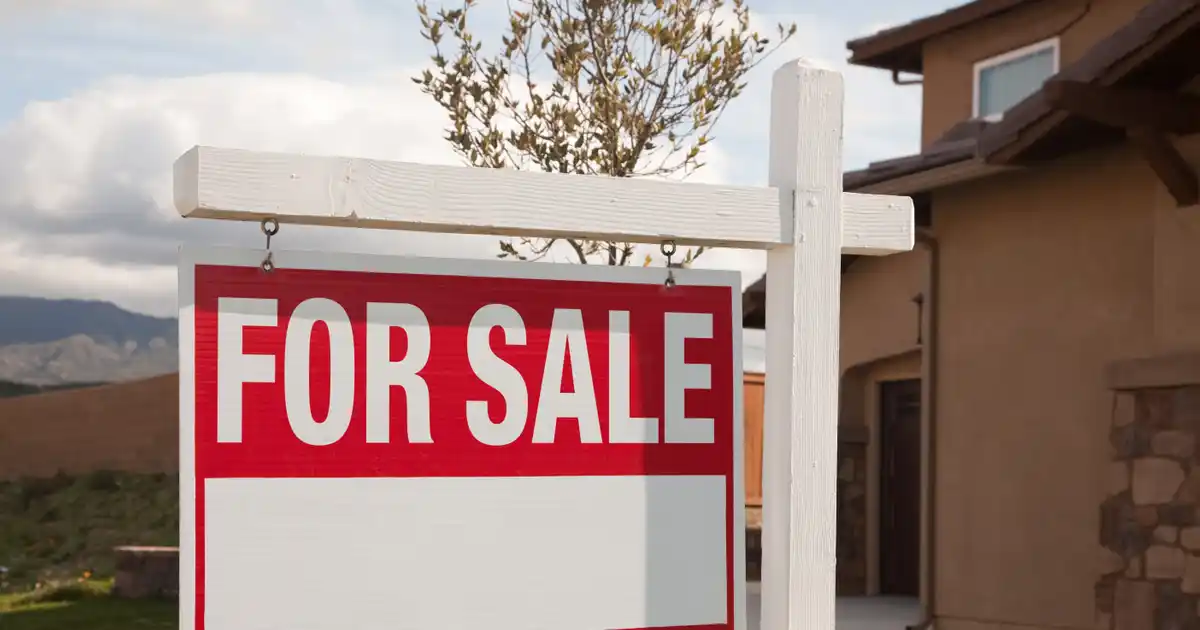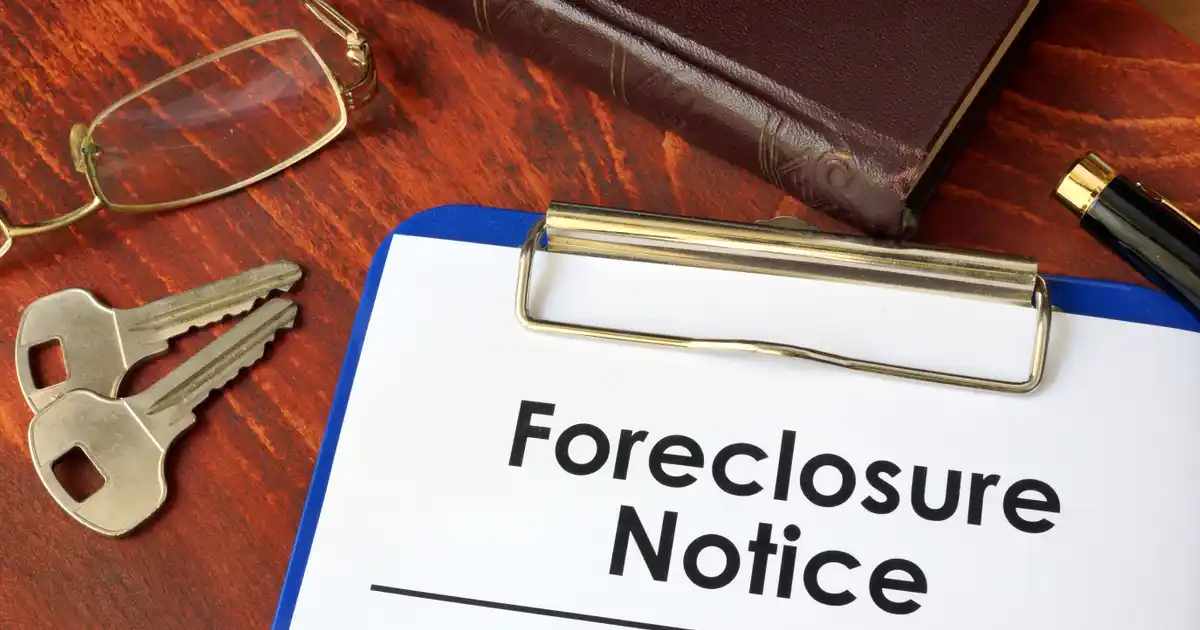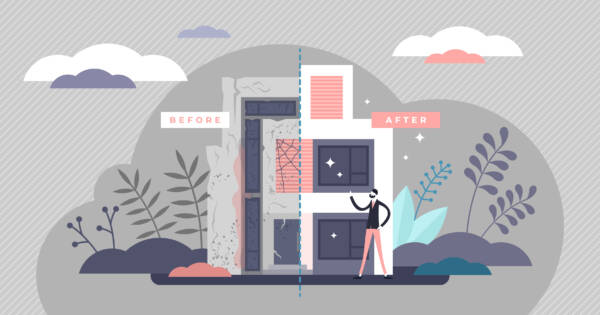- Owner financing allows you to make monthly payments directly to the seller of a house, bypassing the need for a traditional mortgage.
- This type of deal is rare, but can work for both the buyer and seller under certain conditions.
- There’s an increased element of risk when buying a house through owner financing, as they typically require a large lump sum payment at the end of the term — and you better be able to pay it.
If you’ve been paying attention to the housing market at all lately, you know things have been… well, crazy. In many places, house prices have shot up dramatically — even more than doubling in the last five years, in some cities. That means saving up a suitable down payment and qualifying for a mortgage are both much harder than they used to be.
In many cities, the average family home has ballooned up over $500,000. Even a 10% down payment requires $50,000 cash now. Mortgage lenders are getting stingy about their requirements as the size of mortgages increases. Plus the increasing federal interest rates will put those monthly mortgage payments out of reach for many would-be home buyers.
So what’s a prospective home-buyer to do? One option is owner financing.
What is Owner Financing?
Before we discuss the pros and cons of owner financing, we better explain exactly what it is. The short version is that you buy the house directly from the owner, cutting out the middleman of a mortgage lender. These are sometimes referred to as “land contracts” or “contract for deed.”
The idea is that you slowly gain partial ownership of the house, as you make monthly payments on it. That ownership equity can then be used as an asset when you apply for a mortgage to pay for the rest of the house.
 Shutterstock
ShutterstockHow Owner Financing Works
So you can’t qualify for a mortgage on your own. Maybe you’re still working on getting your credit score in tip-top shape or have large consumer debt holding you back. So you find a home for sale that offers owner financing. Now what?
You enter into a contract directly with the owner of the house. You’ll still have to pay a down payment of an agreed upon amount. You then make regular monthly payments to the owner, just like you would with a mortgage. In exchange, you are granted “equitable title” of the property. That means you start to share ownership of the home.
After a few years (owner financing is typically five-to-ten years), you are required to pay off the balance of the sale price. The idea is that you can use the partial equity of the house as an asset to qualify for the mortgage you couldn’t previously get.
 Shutterstock
ShutterstockAn Example
Let’s say you buy a $500,000 home through an owner financing agreement. You make a down payment of $25,000 (only 5%) and agree to pay $2,000 a month for five years. Depending on the agreed interest rate, you’ll still owe roughly $380,000 to the owner.
At this point, you go back to the mortgage lenders. With five years of (hopefully) improved finances, a lower mortgage amount, and some title equity in the property itself, qualifying for that mortgage should be easier. You obtain a $380,000 mortgage and pay off the owner for the rest of the house. After that, you pay your mortgage like normal.
 Shutterstock
ShutterstockPros of Owner Financing
As with most things financial, there are both pros and cons of getting into an owner’s financing arrangement. For some, it could be a great way to buy a house that would be otherwise unattainable in the current market. For others, though, there are expensive risks involved. Let’s take a quick look at the good and the bad of owner financing, starting with the positives.
Speed
Owner financing is merely a contract between two private individuals. No real estate companies or financial institutions are required. That means the whole deal can usually be completed much faster than the traditional house buying process. The speed factor can appeal to both the buyer and the seller, as both parties are typically anxious to get a deal done.
One word of warning, though. Don’t let the lack of red tape in owner financing convince you to speed through the deal too quickly. This is a complex legal contract, with major financial implications (more on this in a minute). Sure, it can be faster. But don’t rush through it just because you’re excited to finally get into a home of your own.
 Shutterstock
ShutterstockLower Closing Costs
Closing costs are a major pain. Unless you can get for a no-closing-cost mortgage (which will just cost you more in the long run), closing costs are a fact of life for almost every home purchase. Closing costs include banking fees, title checks, home appraisal and inspections, and even real estate fees. They can range between 5-and-10% of the entire mortgage cost, so budget accordingly.
Most of these fees don’t exist in an owner financed house purchase. The one notable exception should be legal fees, as you’ll have a professional lawyer to help you with the final wording of the contract.
 Shutterstock
ShutterstockFlexibility
This is, by far, the best part of buying a house via owner financing. Since you are basically entering into a private contract with the seller, the terms can be almost anything — as long as it’s legal and you both agree. For example, the down payment can be as large or small as you both want. The monthly payments are negotiable. Even the term length of the deal can be adjusted to fit everyone’s needs.
The extreme customization of owner financing appeals to many buyers. Just be careful to do the math before you sign. Agreeing to a lower down payment in exchange for a higher interest rate may actually cost you more in the long run. We’re going to keep saying this, but make sure you consult a legal expert before you sign anything. Making sure you understand every aspect of the contract is extremely important.
 Shutterstock
ShutterstockSeller Pros
You may be thinking, “why would anyone sell their house like this? Why not just wait for a buyer with a traditional mortgage to come along?”
Frankly, that’s a good question.
There are a couple of interesting advantages the seller of an owner financed house will have. First, they basically get to offer the house as-is. They can refuse an inspection if they want, since they will technically retain ownership of the house until the term is completed. The seller may also be able to sell the debt for a lump-sum cash payout before the term expires.
The final benefit, which is a big one, is that if the buyer fails to live up to their end of the contract, the seller gets to keep the house (and the down payment and all the monthly payments). Then they can sell it again for full price to someone else, basically cashing in on their asset twice.
 Shutterstock
ShutterstockCons of Owner Financing
If cutting out the banks and other financial middlemen are so great, then why doesn’t everyone buy and sell houses using owner financing? There are a few additional risks, for both the buyer and the seller, that keep owner financing from being more popular. Here’s a quick run down of the negative aspects of owner financing.
Higher Rates
On average, owner financing deals will come with higher interest rates than the banks or other mortgage lenders will offer. That means you’re paying more money every month that isn’t going towards actually buying the house. Of course, the interest rate is entirely negotiable, so it may depend on your bargaining skill.
The good news? Since owner financing deals are often short term (usually three-to-five years, but sometimes as long as ten), you’ll be paying that higher interest for a shorter amount of time. In the right circumstances, you may end up actually paying less interest overall for the entire purchase of the house.
 Shutterstock
ShutterstockPossible Foreclosure
If the seller still has their own mortgage on the property, things get tricky. Theoretically, they will use your monthly payments to satisfy their mortgage obligations. However, there’s not much you can do if they decide to stop paying their mortgage, for any reason. Next thing you know, the bank is foreclosing on the property while you’re living in it, telling you that you’re not the legal owner (you’re not) and that you don’t have any legal recourse (mostly true).
If that happens, you could sue the seller in civil court. Depending on the wording of your contract, you may even win. But that involves costly legal fees and months (if not years) of court battles. In the meantime, you and your family need a place to live.
The most common advice is this: don’t engage in an owner financed house purchase unless the seller owns the property free and clear. If they have a mortgage on the house, the risk is too great.
 Shutterstock
ShutterstockLegal Complexities
We’ve said it a few times already, but we really want to drive this point home. An owner financing contract is a private, legally-binding contract between two private individuals (the buyer and the seller). It’s also potentially worth hundreds of thousands of dollars. The last thing you want is a poorly worded contract to cost you a ton of money. Or your house. Or in the worse case scenario, both.
You absolutely need to hire a lawyer for this. Ideally, one with experience in real estate law and home purchase deals. You may even find a lawyer who will help you create an owner financing contract for a flat fee. Do not try to pinch pennies on your legal costs. An incomplete contract could cost you so much more.
 Shutterstock
ShutterstockThe Balloon Payment
The final potential negative aspect of owner financing is the balloon payment. After the original term of the contract is over, you’ll be required to pay the remaining balance of the sale price. This is likely be still be hundreds of thousands of dollars. Remember that owner financing deals are often made with the intention of being able to obtain a traditional mortgage when the term is over. What happens if you still don’t qualify (or can’t afford) a mortgage at this point?
The most likely result of failing to make the balloon payment is that the seller retains full ownership of the house, evicts you, and you walk away with nothing. Yes, even after a down payment and five years of monthly payments. Agreeing to owner financing with the assumption that you’ll be able to get a standard mortgage in three, five, or even ten years can be a dangerous gamble.
 Shutterstock
ShutterstockHow to Find Owner Financing Houses For Sale
Owner financing isn’t very common. Sure, you can always suggest it to the seller of a house you’re interested in. However, they aren’t likely to be interested if they’ve never heard of it. After all, it’s typically easier to just wait for a pre-approved buyer to make an offer and walk away from the home entirely after it’s sold.
Some sellers, however, specifically seek out these deals. You can sometimes use filters in online searches to find these houses. You can also contact local real estate agents. They will likely know which local sellers are open to these kinds of arrangements. Finally, you can search for FSBO houses (for sale by owner). They are already looking to avoid real estate fees, and may be open to handling things privately.
Finally, if you’re already renting a house or condo unit from a private landlord (as opposed to a property group), it doesn’t hurt to ask them. Maybe they were always planning to sell the asset at some point in the future, to fund their retirement. If you can offer the right terms, maybe they are willing to slowly sell you the house you’re already living in.
 Shutterstock
ShutterstockThe Bottom Line
Owner financing is hardly the standard way to buy a house. In fact, it’s quite rare. However, it is still an option for the right buyer/seller combination. Make sure any contract you come up with is detailed and thorough. Don’t allow assumptions or handshake agreements to ease your worries — they don’t hold up in court. Once more for good measure, make sure a legal expert reviews every part of your contract. Additionally, make sure you understand every aspect of the deal before you sign.
Owner financing can be useful, especially for those rebuilding their credit or barely missing the cutoff for qualifying for a traditional mortgage. Just be careful, though. You’re betting on yourself in a way, by believing that you’ll be in a better financial spot in five years than you are now. We hope that’s true, of course. But if something derails your progress and you can’t make that balloon payment at the end, your purchase contract could be null and void in a hurry.
 Shutterstock
Shutterstock







